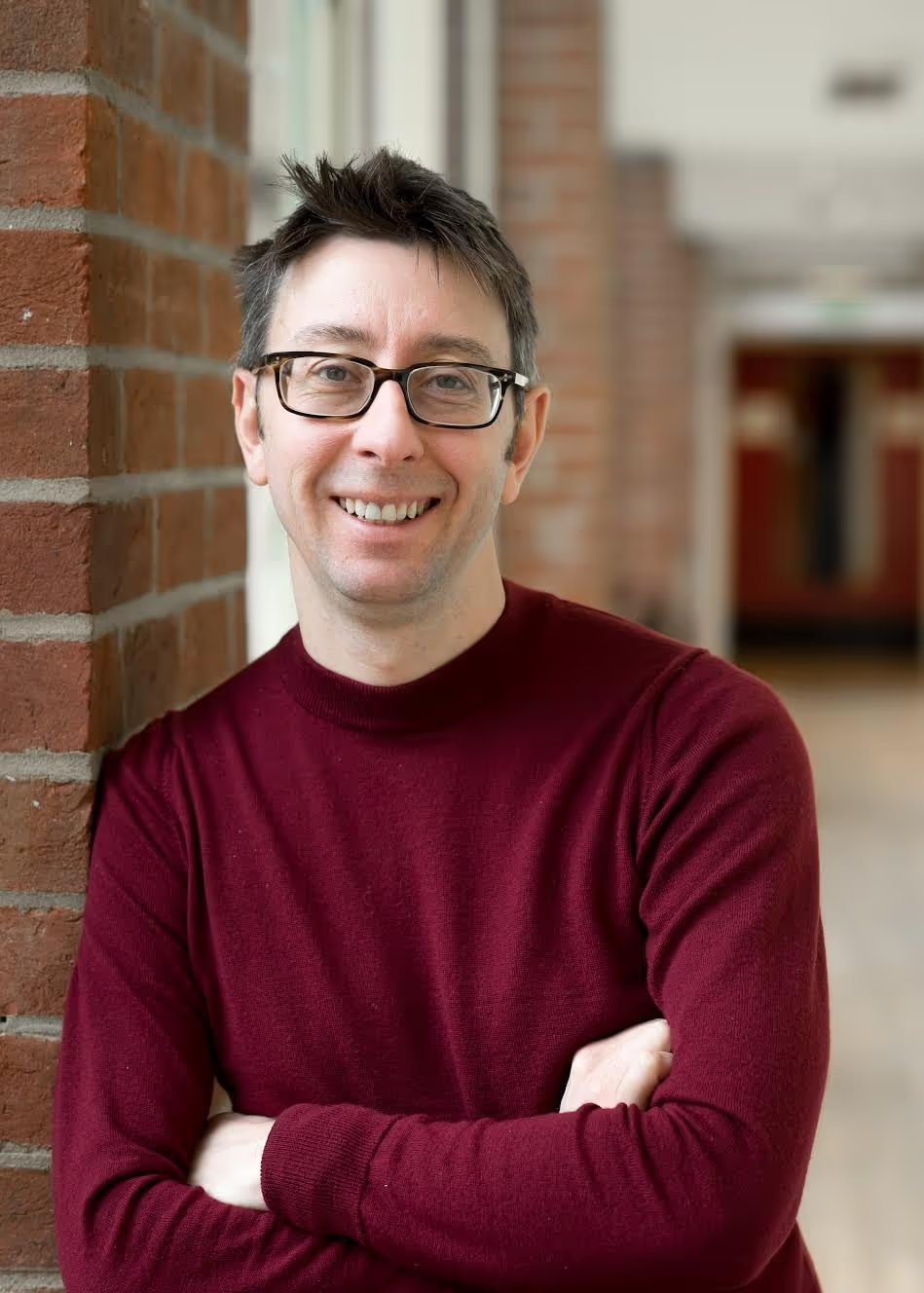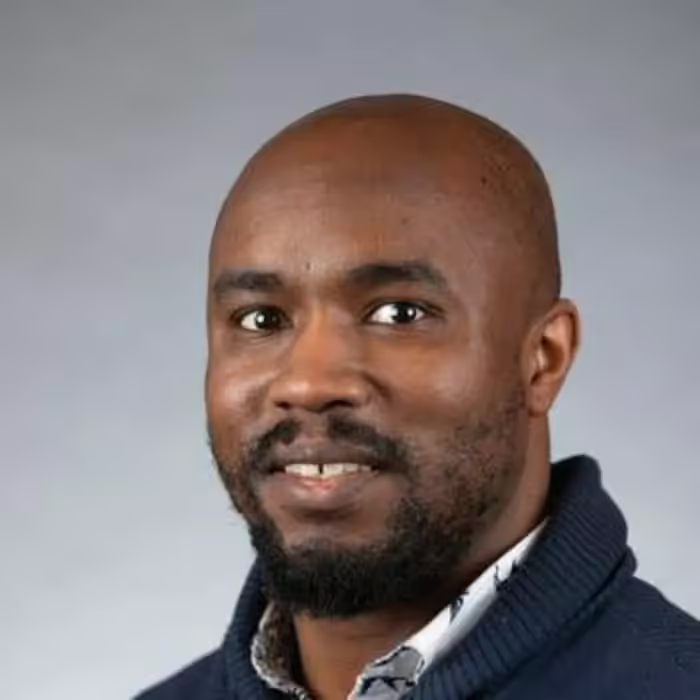Our vision is to end suffering from misophonia.
Misophonia Research Fund (MRF) seeks to foster innovative science and new treatments for misophonia through a competitive grants program. We focus on providing funding for medical research grants that seek to better understand misophonia, diagnose people who have the disorder, and assess treatment strategies.

Who We Are
Misophonia Research Fund (MRF) seeks to foster innovative science and new treatments for misophonia through a competitive grants program. We focus on providing funding for medical research grants that seek to better understand misophonia, diagnose people who have the disorder, and assess treatment strategies. Our vision is to end suffering from misophonia.
MRF was launched in 2019 as an initiative of The REAM Foundation, a private family foundation. With initial guidance from the Milken Institute Center for Strategic Philanthropy, we continue to be guided by a Scientific Advisory Board to strategically allocate resources to high-impact projects, fostering interdisciplinary collaboration and driving transformative science that will advance knowledge to improve the lives of all impacted by misophonia.
MRF in the News

Our Founders

Our misophonia journey began in 2016. The first time we heard the word was from a doctor who invoked it to give a name to the harsh reactions that our daughter had begun to exhibit in response to our chewing at the dinner table. Given the low awareness of the disorder, we were fortunate that our doctor knew about it. The more we learned about misophonia, the more we realized how little scientific and medical research had been done to understand its causes and potential treatments. So, we set out to change that, and to materially impact the field. In 2018, we founded the Misophonia Research Fund (MRF), an initiative of the REAM Foundation. Our mission is to promote cutting-edge collaborative research and to advance scientific knowledge in misophonia. In 2023, we welcomed our first Executive Director to a growing team of experts versed in scientific research and patient advocacy. Today, we are proud to provide significant dedicated funding towards research supporting our vision of ending suffering for all with misophonia.”
MRF Advisory Board
The Scientific Advisory Board
The purpose of the Misophonia Research Fund Scientific Advisory Board (SAB) is to guide the future direction of the program and ensure that the program activities remain aligned with the needs of the scientific field. The inaugural SAB was selected with the intention of reflecting the diversity of disciplines, ideas and scientific approaches necessary to advance scientific breakthroughs for misophonia.

Jamie Ward, PhD
University of Sussex
Dr. Ward is a Professor of Cognitive Neuroscience at the University of Sussex. He is the Co-Director of the Leverhulme Doctoral Scholarship Program “From Sensation and Perception to Awareness” and the Sussex lead for “Psychology, Psychiatry and Neuroscience”. He is also the President of the British Association of Cognitive Neuroscience, and Founding Editor of Cognitive Neuroscience. His research focuses on sensory sensitivities and sound intolerances, including misophonia.

Julia Campbell, PhD
University of Texas at Austin
Dr. Campbell is a Clinical Associate Professor in Speech, Language, and Hearing Sciences at the University of Texas at Austin. She is the PI of the Central Sensory Processes Laboratory. She is a licensed audiologist, received her Doctorate of Audiology from the University of Colorado at Boulder, and holds a triple PhD from the same institution in the following fields: Speech, Language and Hearing Sciences; Behavioral Neuroscience; and Cognitive Neuroscience. Dr. Campbell utilizes high-density EEG methodology to study cortical plasticity of the auditory and visual systems across the lifespan, both in typical and clinical populations. She is currently developing objective clinical measures for use in tinnitus.

Melvin Rouse, PhD
University of Puget Sound
Dr. Rouse is an Associate Professor of Psychology at the University of Puget Sound. His research examines how hormones and the brain interact, utilizing a songbird model system. More specifically, Dr. Rouse uses this model to study patterns of brain plasticity, learning, and social behavior. Dr. Rouse teaches in the areas of behavioral neuroscience, hormones and behavior, research methods and statistics, and comparative neuropsychology.

Ramnarayan Ramachandran, PhD
Vanderbilt University Medical Center
Dr. Ramachandran is an Associate Professor of Hearing and Speech Sciences at the Vanderbilt University Medical Center. He has extensive experience studying the relationship between brain activity and behavior, as well as in noise-induced hearing loss, particularly from the neurophysiological perspective. Since completing a PhD in Biomedical Engineering at Johns Hopkins University, Dr. Ramachandran has been conducting research to further refine the understanding of the neural pathways, circuitry, and signaling that underlie hearing-related functions in noisy environments, and multisensory integration for the past two decades. Utilizing this research as a baseline, the research team at Vanderbilt University Medical Center continues to explore the evolution of noise-induced hearing loss with chronic noise exposure (such as in occupational settings), the effects of aging, and integration of dynamic (time-varying) cross-modal stimuli (stimuli that activate different sensory modalities). For his studies, he uses behavioral, neurophysiological, anatomical, non-invasive audiological methods, as well as computational techniques when applicable.

Zachary Rosenthal, PhD
Duke University
Dr. Zach Rosenthal is a clinical psychologist and Associate Professor with a joint appointment in the Department of Psychiatry & Behavioral Sciences and Department of Psychology & Neuroscience at Duke University. He is Director of the Duke Center for Misophonia and Emotion Regulation (CMER), leading a team conducting research, providing education, and developing clinical care pathways for Misophonia. He also directs the Duke Cognitive Behavioral Research and Treatment Program and is Co-Chief Psychologist for the Department of Psychiatry & Behavioral Sciences. In addition to research, administrative duties, and clinical practice, Dr. Rosenthal enjoys teaching undergraduate and graduate students, mentoring trainees at all levels, and training community clinicians in best practices using cognitive behavioral therapies for adults.
Lived Experience Advisor

Cris Edwards, MFA, CPS
SoQuiet
Dr. Cris Edwards, MFA CPS, is the founder of soQuiet, a 501[c]3 tax-exempt nonprofit organization dedicated to providing free and accessible advocacy and support resources for all people whose lives are affected by misophonia. Cris has struggled with misophonia for decades and is a Certified Peer Specialist [CPS] as well as an occasional theatre director and designer.
Our Staff

Lauren Harte-Hargrove, PhD
Executive Director
With over 15 years of experience in neuroscience research and leadership in the non-profit sector, Dr. Harte-Hargrove brings a passion and unwavering dedication to advancing understanding, treatments, and solutions for those impacted by Misophonia. Prior to joining The Misophonia Research Fund, Dr. Harte-Hargrove’s work focused on increasing rigor in scientific research, awareness, and treatments at leading non-profit organizations. Dr. Harte-Hargrove holds a bachelor’s degree in psychology and neuroscience from Washington University in St. Louis, Missouri, and a PhD in behavioral neuroscience from SUNY Downstate Medical Center in Brooklyn, New York.

Kylie McPherson, PhD
Associate Director of Research
Dr. Kylie McPherson is a neuroscientist with a diverse research background spanning topics such as learning and memory, chronic pain, and sensory sensitivity. Dr. McPherson received her Doctorate of Neuroscience from The Vollum Institute at Oregon Health & Science University and her Bachelor's of Biochemistry from Occidental College. Alongside her education, Dr. McPherson has been a patient advocate and medical writer for a research non-profit, contributing to various projects and initiatives since 2011.

Solena Mednicoff, PhD
Research and Communications Manager
Dr. Mednicoff (she/her) is a neuroscientist and scientific communicator. Her research interests include the neuroscience behind why we enjoy music and how the brain interprets and responds to music. Dr. Mednicoff earned her B.S. in Neuroscience at the University of Nevada Reno. Dr. Mednicoff went on to earn her Ph.D. in Cognitive Sciences, with an emphasis in Cognitive Neuroscience, at UC Irvine where her dissertation examined the cognitive and neural mechanisms of major/minor musical mode processing. After studying misophonia and its relationship with affective sound and musical processing as a postdoctoral research fellow, Dr. Mednicoff is now a part of the Misophonia Research Fund team where she hopes to continue making an impact in misophonia research.
For Researchers
Learn more about strategic priorities and scientific funding opportunities.
Our Grantees
Explore the research of MRF-funded researchers.








